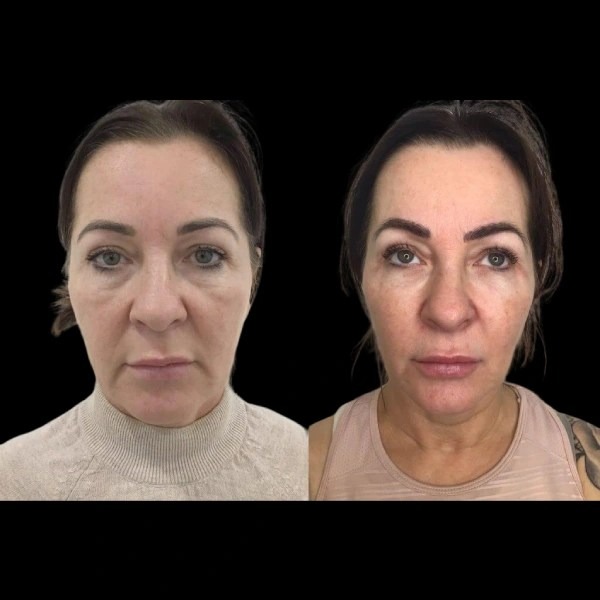Holistic Strategies for Living with Chronic Conditions
Living with a chronic condition can affect far more than your physical health. It can influence your emotional wellbeing, your relationships, your independence, and even the way you see yourself. While medical treatments are often necessary, adopting holistic strategies can make day-to-day life more manageable and fulfilling. These strategies look beyond symptoms alone, focusing on the whole person — body, mind, and lifestyle.
You will discover practical approaches to managing chronic conditions, including diet, exercise, mental health practices, complementary therapies, and examples such as essential tremor remedies. Whether you are a patient or a caregiver, these strategies can help you build resilience, reduce discomfort, and regain a sense of control.
What Does a Holistic Approach Mean?
A holistic approach to chronic illness means addressing all aspects of health — physical, psychological, and social. Rather than focusing only on symptom control, it considers how lifestyle, nutrition, sleep, stress levels, and support systems contribute to your overall wellbeing.
Do you want to visit Char Dham? Char Dham Travel Agent is the best place to plan your Char Dham tour. You can book the tour from here.
Many patients find that while medical treatments manage the condition itself, holistic strategies improve their quality of life and reduce the impact of day-to-day challenges. For example, someone with arthritis may use prescribed medication to manage inflammation but also practice gentle yoga and mindfulness to improve flexibility and reduce stress.
Building a Supportive Lifestyle
1. Nutrition and Chronic Illness
Food plays a central role in managing long-term conditions. A well-balanced diet can reduce inflammation, boost energy, and prevent complications.
- Eat more whole foods: Choose fresh fruit, vegetables, lean protein, nuts, seeds, and whole grains. These provide essential vitamins and minerals.
- Stay hydrated: Dehydration can worsen fatigue, headaches, and joint stiffness. Aim for consistent fluid intake throughout the day.
- Limit processed food: Highly processed foods are often high in salt, sugar, and unhealthy fats, which can aggravate chronic conditions.
- Tailor your diet: For example, if you live with diabetes, a focus on controlling carbohydrate intake is vital, while those with kidney disease may need to limit potassium or phosphorus.
Many people also explore complementary options such as herbal remedies. For example, individuals living with essential tremor sometimes look into Natural Supplements For Essential Tremors to complement medical advice. Always discuss supplements with your doctor to avoid interactions.
Would you like to visit Indiar? A tour operator in India is the best place to plan your tour. You can book a tour from here.
2. Exercise for Strength and Flexibility
Chronic illness often brings fatigue, stiffness, or reduced mobility, which makes exercise seem challenging. Yet, physical activity is one of the most effective ways to improve overall health.
- Start small: Even 10 minutes of walking or stretching can make a difference.
- Adapt to your condition: Swimming or water aerobics are excellent if you experience joint pain, while tai chi can improve balance and reduce falls.
- Consistency matters: Gentle, regular exercise is better than occasional intense effort.
- Energy management: Learn to pace yourself — activity followed by rest can help avoid overexertion.
3. Mental and Emotional Wellbeing
Living with a long-term condition can affect mental health as much as physical health. Anxiety, depression, or frustration are common but manageable with the right strategies.
- Mindfulness and relaxation: Breathing exercises, meditation, or guided relaxation can ease stress.
- Counselling or support groups: Speaking with others who face similar challenges can reduce feelings of isolation.
- Journaling: Writing down thoughts and progress can help track improvements and identify triggers.
- Routine and structure: Establishing regular sleep and daily habits helps stabilise mood and energy.
Managing Symptoms with Complementary Therapies
Holistic strategies also include therapies that work alongside conventional medicine. While not replacements for prescribed treatments, they can provide meaningful relief.
Would you like to visit Haridwar? Travel agents in Haridwar are the best place to plan your trip. You can book your tour right here.
- Acupuncture: Some people report reduced pain and improved energy levels.
- Massage therapy: Helps relieve muscle stiffness and promotes relaxation.
- Aromatherapy: Essential oils such as lavender or peppermint may ease headaches and improve sleep.
- Herbal approaches: Patients explore remedies such as Essential Tremor Herbal Treatment, particularly when conventional options offer limited relief. Always use these under professional guidance.
Essential Tremor: A Case Example
Essential tremor is one of the most common neurological conditions, causing involuntary shaking of the hands, head, or voice. While medication and, in some cases, surgery are available, many people seek additional support.
Holistic strategies for essential tremor may include:
- Stress reduction: Anxiety often worsens tremors. Mindfulness, breathing exercises, or yoga can help.
- Lifestyle adjustments: Avoiding excessive caffeine and getting enough sleep can reduce severity.
- Physical therapy: Exercises that strengthen coordination may improve daily function.
- Herbal Care Products: Some patients use natural remedies as part of their symptom management plan, alongside medical advice.
Essential tremor remedies highlight how a holistic framework combines medical treatments with practical lifestyle changes and complementary therapies.
Sleep and Rest as Part of Healing
Sleep is critical in managing chronic conditions. Poor sleep can increase pain, lower immunity, and worsen fatigue.
- Create a sleep routine: Go to bed and wake up at the same time daily.
- Optimise your environment: Keep your bedroom cool, dark, and quiet.
- Reduce screen time: Blue light from devices can interfere with melatonin production.
- Rest periods: Even if you cannot sleep, resting during the day helps your body recover.
Building a Strong Support Network
Support from family, friends, or carers makes a profound difference in coping with a long-term condition.
- Open communication: Share your challenges and needs with loved ones.
- Support groups: Both in-person and online communities provide understanding and encouragement.
- Professional help: Social workers, occupational therapists, and dietitians can help adapt your lifestyle.
Balancing Independence with Care
One of the biggest challenges for people living with chronic illness is maintaining independence while accepting help when needed. Holistic strategies can support this balance:
- Use assistive devices such as walking aids, adapted cutlery, or voice-to-text tools.
- Plan daily activities around energy levels to conserve strength.
- Accept help for physically demanding tasks, focusing your energy on activities that bring you joy.
Frequently Asked Questions
Can holistic strategies replace medical treatment?
No. They work alongside prescribed treatments, not instead of them. Always consult your healthcare provider before making changes.
Are herbal supplements safe for chronic illness?
Some are beneficial, but others may interact with prescribed medication. Seek professional advice before starting any supplement.
How do I know which strategies are right for me?
Experiment with different approaches and track how you feel. What works for one person may not suit another.
Final Thoughts
Holistic strategies for chronic illness aim to improve quality of life by addressing every part of your health — physical, emotional, and social. From nutrition and exercise to stress reduction and complementary therapies, these practices help you feel more in control of your condition.
Examples such as essential tremor remedies show how combining medical treatment with natural approaches, lifestyle changes, and Herbal Care Products can make daily life easier. While chronic conditions may not always be curable, a holistic plan can support you in living fully and meaningfully.







